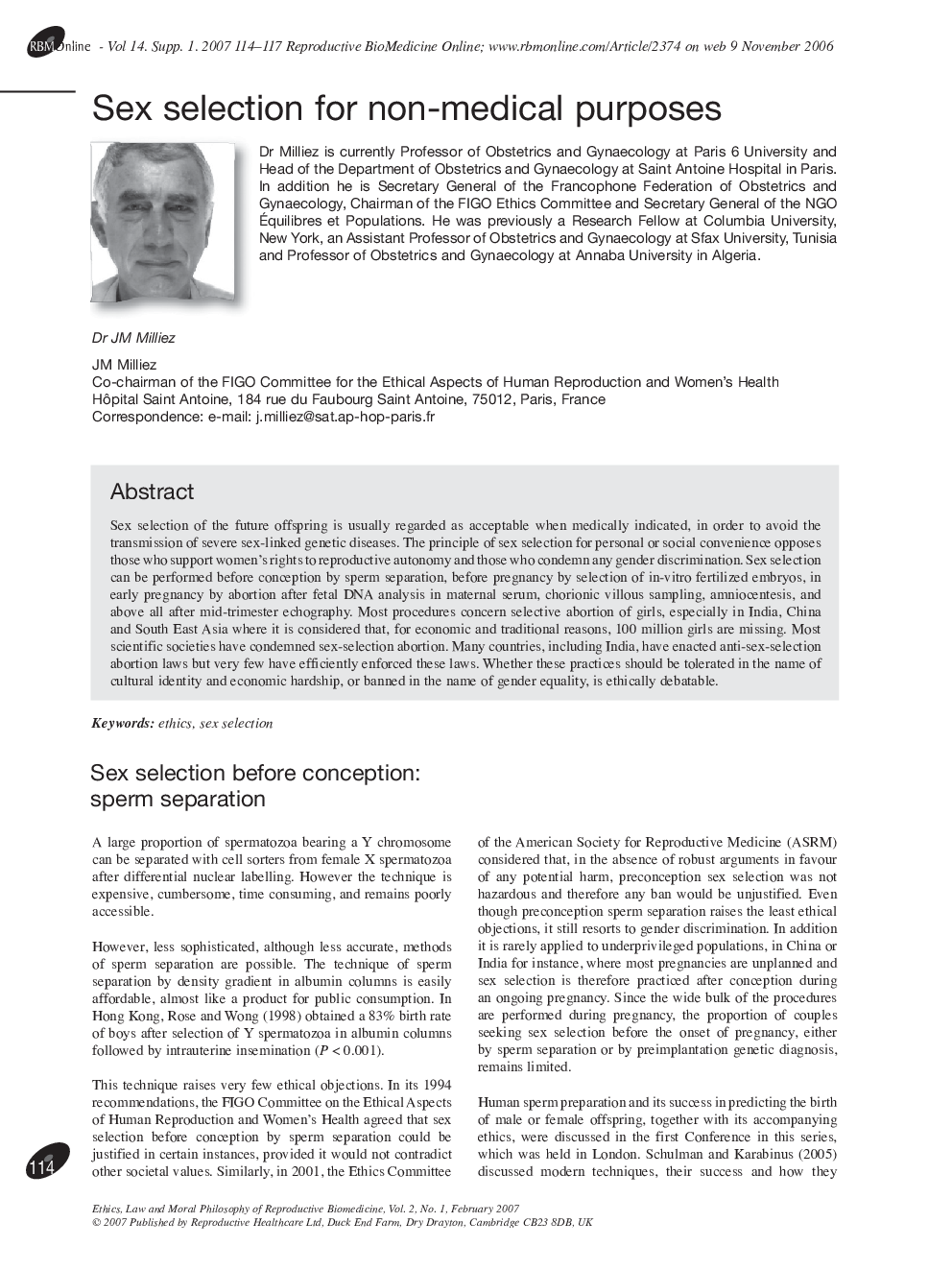| Article ID | Journal | Published Year | Pages | File Type |
|---|---|---|---|---|
| 3973496 | Reproductive BioMedicine Online | 2007 | 4 Pages |
Sex selection of the future offspring is usually regarded as acceptable when medically indicated, in order to avoid the transmission of severe sex-linked genetic diseases. The principle of sex selection for personal or social convenience opposes those who support women's rights to reproductive autonomy and those who condemn any gender discrimination. Sex selection can be performed before conception by sperm separation, before pregnancy by selection of in-vitro fertilized embryos, in early pregnancy by abortion after fetal DNA analysis in maternal serum, chorionic villous sampling, amniocentesis, and above all after mid-trimester echography. Most procedures concern selective abortion of girls, especially in India, China and South East Asia where it is considered that, for economic and traditional reasons, 100 million girls are missing. Most scientific societies have condemned sex-selection abortion. Many countries, including India, have enacted anti-sex-selection abortion laws but very few have efficiently enforced these laws. Whether these practices should be tolerated in the name of cultural identity and economic hardship, or banned in the name of gender equality, is ethically debatable.
